10 thoughts from Matchday 3 in the Champions League
The Champions League rumbled on this week. Below, we dissect the biggest talking points from Matchday 3 in Europe’s premier club competition.
Nkunku’s stock continues to soar
It’s not difficult to see why Christopher Nkunku is one of the most coveted players in the world right now. His impressive display Wednesday was a great example of why some of football’s biggest teams are lining up to sign him.
The versatile 24-year-old wasted no time showing his value in RB Leipzig’s win over Celtic, opening the scoring with a goal that showcased his lightning pace and composure in the final third. Nkunku, who’s been heavily linked with Chelsea, played provider later on in the 3-1 win after delivering a mouthwatering pass in the buildup to Leipzig’s third goal.
Christopher Nkunku has been directly involved in 61 goals for RB Leipzig since the start of last season:
? 65 games
? 44 goals
? 17 assists#UCL pic.twitter.com/CxhjTRSvAL— Squawka News (@SquawkaNews) October 5, 2022
It wasn’t his best game of the season, but Nkunku once again stepped up with a performance that should help explain why Chelsea are moving quickly to secure his services.
Where the French forward would fit into manager Graham Potter’s setup is another matter, given the abundance of players with a similar profile currently employed at Stamford Bridge. But Chelsea appear to be working quickly to avoid a bidding war by pushing for an agreement with Leipzig outside of the transfer window.
Milan embarrass themselves in London
AC Milan traveled to Stamford Bridge without a number of key players, including captain Davide Calabria, goalkeeper Mike Maignan, and left-back Theo Hernandez, but nothing can excuse the dreadful performance that followed Wednesday in west London. They looked nothing like the team that captivated audiences in Italy last season with their breathless pressing football. Those watching Milan for the first time Wednesday might’ve even wondered how they won the Serie A title.
Chelsea certainly caused problems, putting their opponents under immediate pressure anytime they tried to play out from the back. But the 3-0 result was largely a byproduct of Milan’s sheer sloppiness. The Blues simply accepted the invitation to hit them on the counter.
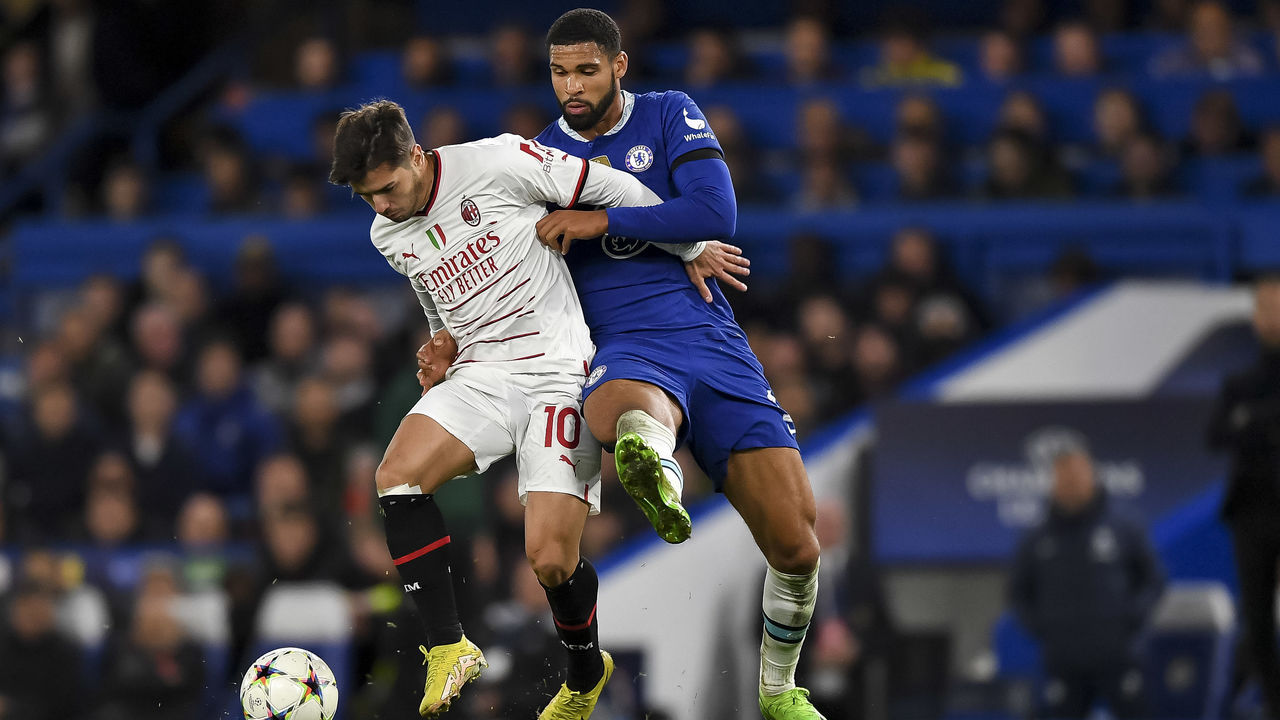
On the sideline, head coach Stefano Pioli seemed more frustrated than usual, urging his players to take up positions on the pitch. The players seemed just as confused with their assignments. Usually so quick to understand when to press, the Rossoneri instead pointed fingers at each other, expecting someone else to cover their man. In the end, no one ended up taking responsibility, and Chelsea were on their merry way.
Last season’s miserable group stage exit was supposed to teach them these lessons. If Pioli can’t correct the mistakes his players continue to make in the Champions League, they may again finish last in their group. As champions of Italy, that’s unacceptable.
Potter turning Chelsea into a unit again
Chelsea already look so much better under Graham Potter. Just three weeks into his tenure, the Blues have recovered their sense of self, playing with greater attention to detail both in and out of possession. Potter’s shown flexibility as well. Having used different formations in each of the three matches he’s coached since taking the job on Sept. 8, he has managed to see the majority of his players in action.
And the competition for places seems to have raised each of their levels. You could hardly tell Ruben Loftus-Cheek was making just his fourth career start in the Champions League. He was a calming presence in the midfield, winning second balls and fouls just when the game became chaotic. He didn’t try to do too much. He just played within himself.
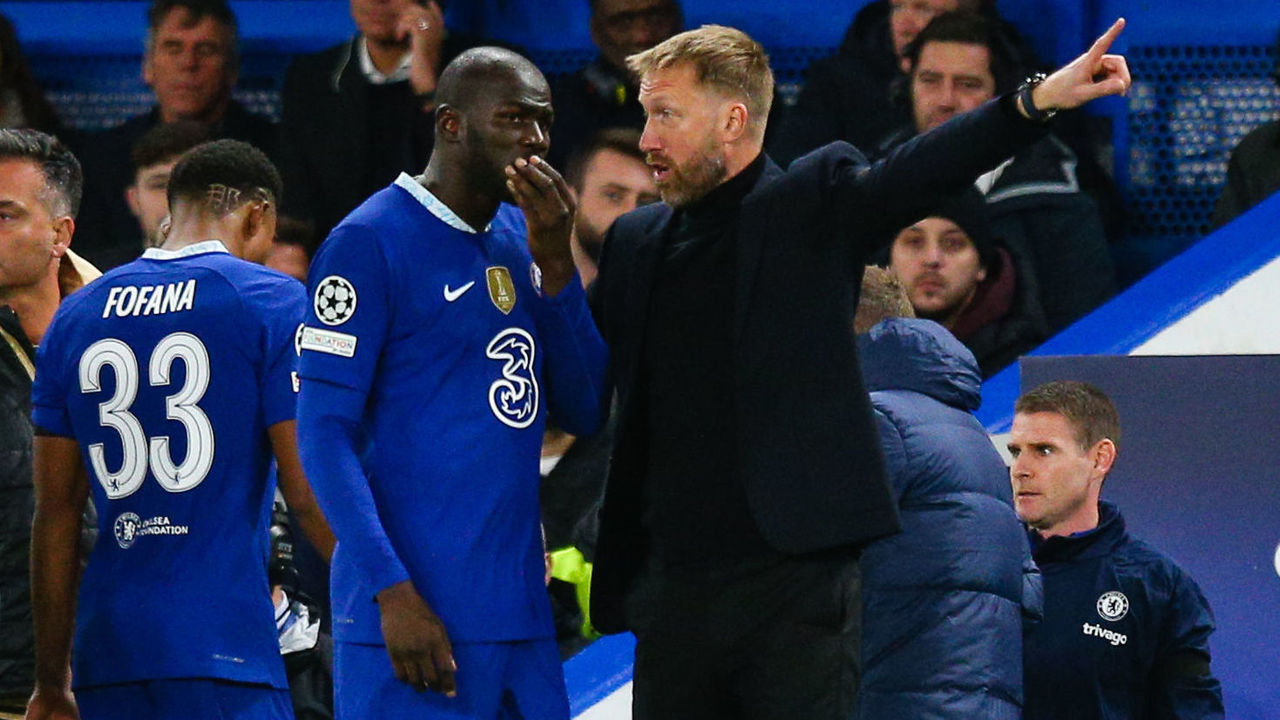
Mason Mount and Raheem Sterling also offered a hand in midfield, helping Chelsea crowd key areas of the pitch. Without a clear path forward, Milan couldn’t string together any number of meaningful passes. All they could do was launch a hopeful ball into the air. It never reached its destination.
But most of the credit must go to Potter, who picked up a fragmented side and made them whole. It’s not so much the tactics he’s used as the roles he’s asked his players to fill. No matter the players in Chelsea’s lineup, they seem to have a clear idea of the task at hand. The message from Thomas Tuchel, especially in the final days of his reign, lacked that clarity.
The real Di Maria has arrived
That’s more like it.
When Juventus signed Angel Di Maria on a free transfer in the summer, everyone expected the Argentine winger to bring his trademark brand of majestic football to Turin. There would be tricks, flicks, and panache as the decorated veteran became an integral part of the Italian side’s attack, using his intoxicating dribbling and elite passing skills to unlock opposing backlines and tee up a bevy of goals for Dusan Vlahovic.
Things … didn’t get off to an ideal start. Di Maria suffered an injury on his debut, missed time, struggled for form upon his return, and then picked up a straight red card in a humiliating league defeat to Monza.
His disjointed Juventus career seems to finally – properly – have kicked into gear, though, as the 34-year-old racked up a trio of assists in the Bianconeri’s much-needed 3-1 win over Maccabi Haifa on Wednesday.
The last three hat-tricks of assists in a #UCL game:
? Di María vs. Club Brugge (2019)
? Cancelo vs. Club Brugge (2021)
? Di María vs. Maccabi Haifa (2022)Vintage ADM. ? pic.twitter.com/60C94bl58b
— Squawka (@Squawka) October 5, 2022
Di Maria started in his familiar place on the right wing but had the freedom to roam about the pitch and find pockets of space to exploit. He did exactly that in setting up goals from open play for Adrien Rabiot and Vlahovic; his outside-of-the-boot pass for the Serbian’s tally was sumptuous. His wicked delivery from a corner teed up Rabiot’s second goal. He showed off the entire arsenal.
Wednesday’s win was fundamental for Juventus’ hopes of reaching the knockout stages after opening with two consecutive losses. Di Maria is, too. For his club to succeed, he needs to thrive.
Here are the main talking points from Tuesday’s matches …
Red-hot Sane flying under the radar
There’s been plenty of uncertainty hovering over Bayern Munich after a few hiccups – domestically, anyway – early on this season. New signing Sadio Mane’s lackluster scoring touch hasn’t helped, as the former Liverpool star has yet to match expectations less than three months into his Bayern career.
A day after talking about his growing pains at Bayern, Mane helped endear himself to fans with his first Champions League goal for the German club in Bayern’s 5-0 victory over Viktoria Plzen on Tuesday. Yet, Leroy Sane is arguably becoming the most important player Julian Nagelsmann has in his bottomless pool of attacking talent.
Jamal Musiala has deservedly received plaudits this season, but Sane’s evolution into one of the most lethal wingers in Europe has somewhat gone under the radar. With seven goals in all competitions this season, Sane is establishing himself as Bayern’s primary scoring threat.
Sane was pivotal in Tuesday’s Group C encounter, again ensuring Bayern Munich’s struggles remain limited to the Bundesliga. His brace – which included a stunning strike from outside the box – helped the Bavarians comfortably maintain a perfect start in the Champions League group stage after three games.
31- @FCBayernEN are unbeaten in 31 group matches in the #UCL setting a new record in the competition. Bayern have also won their last 10 group matches, with no team ever winning more consecutive group games in the #UCL (incl. 2nd group stage). Invincibles. #FCBPLZ pic.twitter.com/AZBaMxoOt9
— OptaFranz (@OptaFranz) October 4, 2022
It’s obviously still early in the season, so Sane experiencing a Mane-like slump is totally possible at some point. Likely, even. But if he can stay healthy, Sane could be on the brink of his best campaign yet and maybe even fulfill the lofty expectations he’s struggled to achieve since arriving in Munich from Manchester City.
Redemptive night for Alexander-Arnold
There was no chance anybody but Trent Alexander-Arnold would be in charge of free-kick duties early on in Liverpool’s Champions League meeting with Rangers. When the opportunity came, the look of confidence on his face was undeniable for a player who’s come under fire after struggling on the defensive side of the ball this season.
Fans around Anfield were on their feet in anticipation of what would come from their fellow Scouse. Alexander-Arnold, who Jurgen Klopp backed to rediscover his form earlier this week, delivered one of his vintage free-kicks to help propel Liverpool to a 2-0 victory.
Although the moment of magic – combined with his efforts in keeping a clean sheet – should help temporarily silence critics, the 23-year-old’s ball-striking abilities have never been a concern.
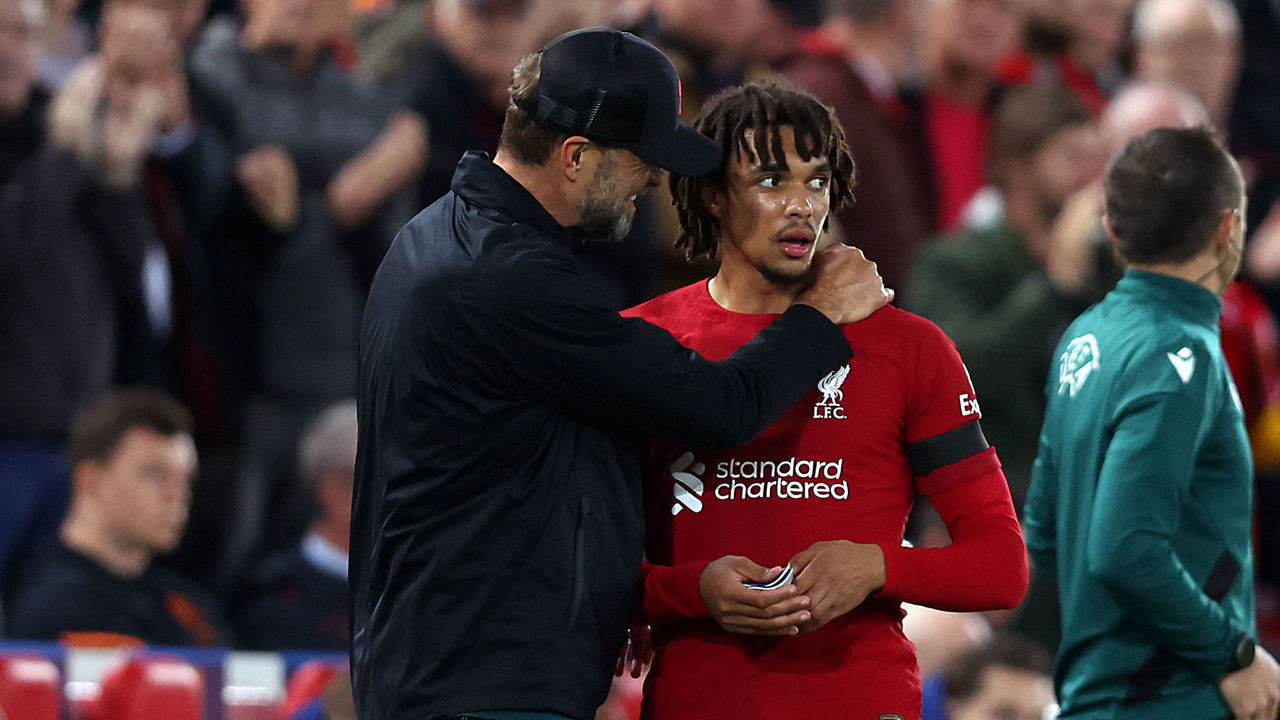
It’s indifferent defending that’s set off alarm bells, leading to a somewhat tedious debate about whether his place in Gareth Southgate’s England squad for the World Cup is under threat. There’s no denying his defensive play is a major concern. From failing to track opposing players in dangerous areas to looking disinterested amid Liverpool’s early-season struggles, there’s no shortage of evidence highlighting Alexander-Arnold’s worrying form.
But, in the end, it’s quite ridiculous that Southgate would ever consider omitting one of the most gifted players in the world. Especially one who is, as he did Tuesday, capable of deciding matches with one swing of his boot. The real question before the World Cup should be whether he plays regularly or is forced to take a back seat behind the likes of Reece James and Kyle Walker.
Barcelona still a work in progress
Barcelona may be top of La Liga, but they’re far from the finished product. Tuesday’s 1-0 loss to Inter Milan proved as much. This is a relatively young team with a young coach. While they may have an idea of football in their minds, they haven’t quite found a way to make it work in Europe. It’s one thing to beat up the Elche and Cadiz; it’s another to try the same tricks against Bayern Munich and Inter.
Despite controlling possession 71% of the time, Barcelona rarely threatened Andre Onana’s goal, producing just two shots on target. Robert Lewandowski, who leads all scorers in La Liga with nine goals, recorded only two touches in the penalty area and spent most of the time holding up play with his back to goal. Ousmane Dembele couldn’t complete a single dribble. He even switched sides midway through the second half, hoping to fare better on the left than he did on the right. That experiment ended after a few minutes.
Barcelona had every right to complain about the penalty they weren’t given. Inter wing-back Denzel Dumfries clearly handled the ball during a tussle with Ansu Fati in second-half stoppage time. But the Blaugrana did themselves no favors at San Siro. They moved the ball too slowly to draw Inter’s defenders out of position and didn’t play the kind of vertical passes Xavi Hernandez wants to see from his players. Over 41% of Barcelona’s passes went backward, and you could sense the desperation in each of the 50 crosses they attempted.
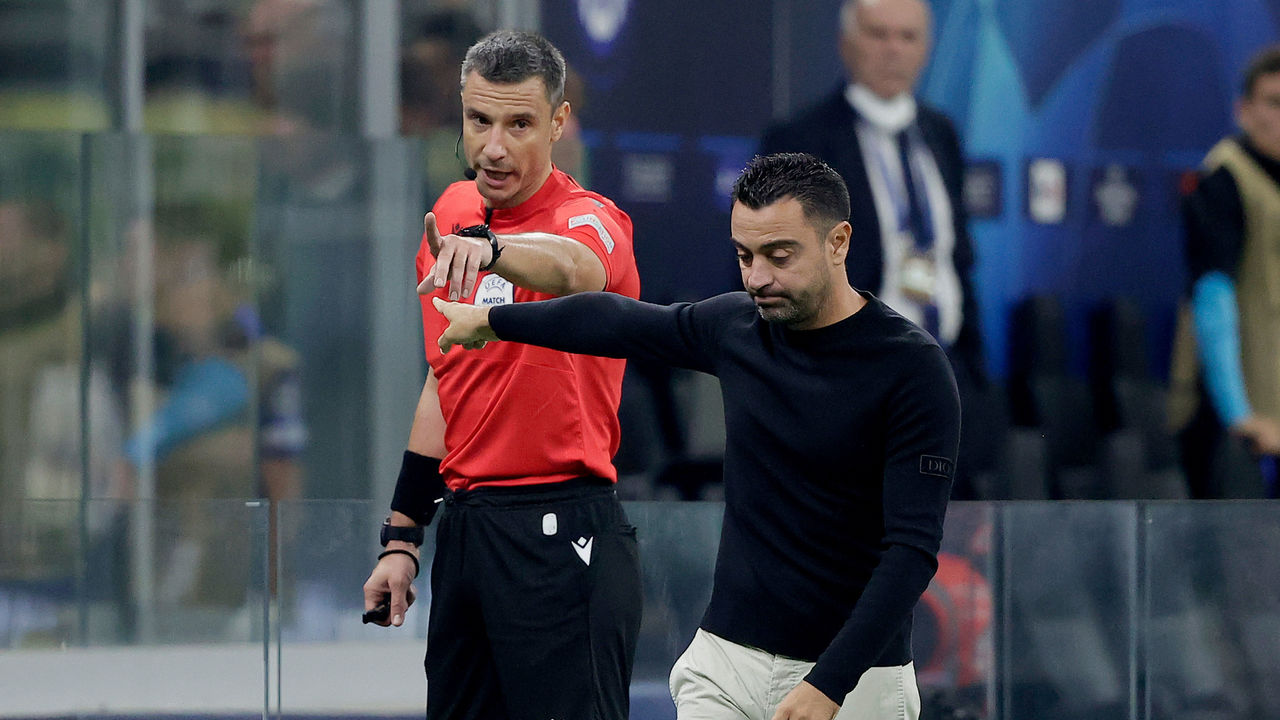
Of course, Inter made it difficult to play any meaningful passes into the final third. Barcelona’s failure Tuesday was also Inter’s success. Armed with a back five, the Nerazzurri played with men behind the ball, and their midfielders patrolled the half spaces to ensure the likes of Dembele couldn’t break into the area. Federico Dimarco, Henrikh Mkhitaryan, and Alessandro Bastoni covered whenever the French winger tried to glide infield. It was a defensive masterclass.
But the Catalan giants can do better. Barcelona played much better in a 2-0 loss to Bayern and could’ve won that game with better finishing. But they struggled mightily against Inter, not just in attack but also against the counter. Barcelona capitulated every time they lost possession, and that happened a lot. If they can’t score, then they have to learn to resist the tide when it inevitably turns.
Ultimately, Barcelona have a long way to go before they can convince the masses they’re ready to compete for titles again. They may be in first place in the Spanish top flight, but five of the six teams they’ve beaten in Spain are currently in the bottom half of the table. Bigger tests await. The next month will reveal what this team can really achieve.
Another strike against VAR
That said, Barcelona could’ve used at least one of the two calls match official Slavko Vincic and video assistant referee Pol van Boekel somehow missed during another horrific 90 minutes of officiating in the Champions League.
Dumfries’ arm was clearly in an unnatural position when the ball struck his hand as he attempted to head it away in the 92nd minute. But after reviewing the footage, Van Boekel not only decided against awarding a penalty but neglected to even instruct Vincic to see the pictures for himself on the pitchside monitor.
Vincic has the right – and, in this case, the obligation – to review controversial incidents for himself. He did when Van Boekel detected Fati had handled the ball in the build-up to Pedri’s equalizer and ultimately chalked it off once he saw the clip. Why, then, didn’t the match official head back to the monitor when Dumfries committed a similar offense?
Xavi said the referee didn’t even offer an explanation at the end of the match.
“I think the referee should be out here explaining these decisions,” the Spaniard told reporters. “Today I’m really unhappy. I feel there’s real injustice.”
That’s saying nothing of the red card Vincic could’ve shown to Hakan Calhanoglu for a sliding tackle that caught the inside of Sergio Busquets’ leg. That would’ve left Inter down a man for the final 20 minutes. Calhanoglu escaped with a yellow card.
Unfortunately, the current system leaves doubt in the minds of coaches, players, and fans. But it’s not the fault of the technology. The officials making decisions continue to get it wrong and make no attempt to explain themselves when they do.
Can Napoli maintain rip-roaring pace?
How do you say “bulldozer” in Italian?
Napoli are on an absolute tear to begin the season, demolishing Ajax 6-1 – in Amsterdam, no less – in yet another high-octane attacking display from Luciano Spalletti’s insatiable team.
Still unbeaten, they’ve won nine of their 11 matches in all competitions this season, scoring 31 goals in the process. The high-flying side sits tied for first in Serie A and tops its Champions League group with a perfect record.
They’re also the first Italian team to ever score more than 10 goals in the opening three Champions League games of a season.
Napoli are the first visiting team to score FIVE goals against Ajax in a European game.
IN. CRE. DI. BILE. ?#UCL pic.twitter.com/vuUxwP7lb0
— Squawka (@Squawka) October 4, 2022
Those numbers are even more impressive considering how the club was forced to retool in the summer after losing several beloved stalwarts; captain Lorenzo Insigne, all-time top scorer Dries Mertens, defensive anchor Kalidou Koulibaly, and midfield lynchpin Fabian Ruiz all departed.
That type of upheaval, which raised a furor among the fan base, threatened to derail the season before it began. Instead, it turned out to have the opposite impact, rejuvenating the club. The new players, most of them young and hungry, have infused Spalletti’s team with more verve and energy, while other incumbents have flourished with added opportunities.
Khvicha Kvaratskhelia, already a beloved figure in Naples, is a sensation. Giacomo Raspadori, who scored twice Tuesday, has hit the ground running. Andre-Frank Zambo Anguissa is having a spectacular season thus far. Kim Min-jae has seamlessly replaced Koulibaly in defense. And arguably their best player, Victor Osimhen, should return from injury soon.
We’ve seen this before, to an extent. Napoli began last season on fire, winning 10 of their first 11 league matches before hitting a rough patch and falling off the pace in Serie A. But, fuelled by Kvaratskhelia and Co., this feels different. Napoli are a frightening force to be reckoned with.
Club Brugge are for real
Hands up if you expected Club Brugge to roll through their group after three matches. Yeah, neither did we.
The Belgian club made a serious statement of intent Tuesday, brushing aside Atletico Madrid 2-0 to maintain their perfect start to the Champions League campaign. Carl Hoefkens’ team sits comfortably atop Group B with nine points, scoring seven goals along the way and, most impressively, not conceding any. Only Bayern Munich can match that defensive record in this year’s competition. Decent company.
This isn’t a case of Brugge getting lucky, either.
xG map for Club Brugge – Atletico
they atleti’d them! pic.twitter.com/tLEJ91qanB
— Caley Graphics (@Caley_graphics) October 4, 2022
Yes, Antoine Griezmann wasted a glorious chance from the penalty spot, but Brugge defended stoutly overall. And combine that with explosive attacking players who can break down the opposition at a moment’s notice.
Canadian winger Tajon Buchanan tormented Atletico, while the red-hot Ferran Jutgla continued to establish himself as one of the best value signings of the summer transfer window, scoring his eighth goal in 11 matches across all competitions since moving from Barcelona for just €5 million.
With the 23-year-old Spaniard leading the way, and a collection of effervescent talent around him, Club Brugge are making waves.




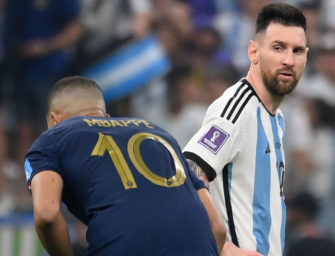
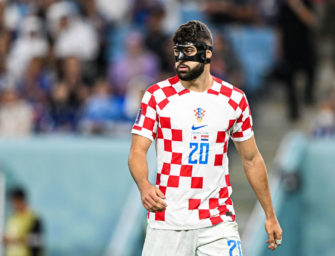
Latest Comments